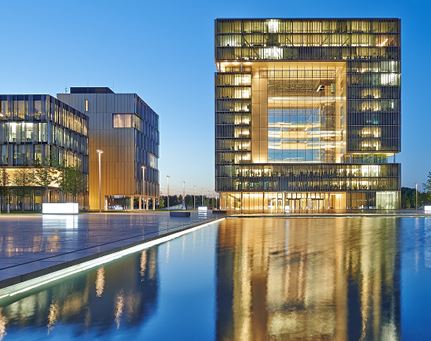Thyssenkrupp breakup plans: End of an industrial era and national icon
by David Fleschen

German industrial icon Thyssenkrupp is poised for a radical transformation. Under the leadership of CEO Miguel Ángel López, the once-mighty conglomerate is set to be dismantled piece by piece, in what insiders describe as the most sweeping restructuring in its modern history. The end goal: a stripped-down financial holding with significantly fewer employees, fewer assets, and a dramatically reduced role in Germany’s industrial landscape.
From Industrial Powerhouse to Hollow Shell
Founded in its current form through the 1999 merger of Friedrich Krupp AG and Thyssen AG, Thyssenkrupp has long been a symbol of German engineering might. Now, 25 years later, that legacy is being unraveled. According to internal sources and reporting by German media outlet Bild am Sonntag, López plans to transform the company into a financial holding, paving the way for the sale or spin-off of nearly all major divisions.
One of the most prominent moves will be the planned IPO of its naval subsidiary, Thyssenkrupp Marine Systems (TKMS). Shareholders are expected to vote on the listing during an extraordinary general meeting on August 8.
But that’s just the beginning:
-
Steel Trading: The division, employing around 16,000 people and generating over €12 billion in revenue annually, is also expected to be floated on the stock exchange. However, as Bild reports, investors may show little enthusiasm due to the unit’s thin margins.
-
Automotive Supply Division: Major portions are to be sold or shut down. Insiders say only a “barebones operation” might remain.
-
Corporate Headquarters: The Essen-based HQ is facing massive downsizing, from 500 to around 100 employees. Additional job cuts in administrative departments are planned.
Drastic Cutbacks – Little Resistance
The implications of the plan are staggering. According to Bild, the restructuring could eliminate around 70% of Thyssenkrupp’s annual revenue – approximately €35 billion – and reduce its workforce of 98,000 by more than half. Only a small, nascent green technology unit is expected to remain. Internal sources note this unit is too small to operate independently.
Despite the scale of the transformation, resistance appears limited. Though trade union IG Metall has seats on the supervisory board, sources suggest it lacks the strength to mount an effective challenge. Political pushback is also unlikely. North Rhine-Westphalia’s state government under CDU leader Hendrik Wüst has remained silent. And even the federal government, which could theoretically block the TKMS IPO on national security grounds, has shown little inclination to act.
This is especially significant given TKMS’s strategic importance to Germany’s naval defense. As Russia continues to exert military pressure in the Baltic region, critics argue that Chancellor Friedrich Merz is failing to take decisive action on defense industrial policy – mirroring his predecessor’s hands-off approach.
A Triumph for López?
While thousands of employees face uncertain futures, CEO Miguel Ángel López is expected to reap personal rewards. According to corporate insiders, his contract is set for renewal, with the supervisory board due to vote on the extension on September 16.
López, who joined the company in mid-2023 from Siemens, reportedly has plans to host 450 top managers in Madrid – his adopted home – immediately after the meeting. The gathering is seen as both a strategy summit and a victory celebration. One manager described it as “his coronation mass.”
End of a German Legend
Thyssenkrupp’s name is inextricably linked with the rise of modern German industry. From 19th-century steel foundries to weapons production in two world wars, to playing a central role in the postwar economic miracle, the company shaped the nation’s industrial identity. Under Berthold Beitz – who led the Krupp Foundation until his death in 2013 and was known for his efforts to reckon with the firm’s Nazi-era past – the group transitioned into a socially conscious corporate leader.
That era is now drawing to a close.
With the steel business set to be sold off to Czech billionaire Daniel Křetínský, TKMS poised for public trading, and the materials division targeted for divestment, Thyssenkrupp as a unified industrial force is effectively being dismantled. From a peak of nearly 200,000 employees, only a fraction will remain.
What’s left is a hollowed-out structure — and a sobering moment for German industry. As one senior executive reportedly put it: “In the end, Thyssenkrupp will be practically dissolved.”
The question now is whether this bold transformation will be remembered as a long-overdue renewal – or the quiet burial of a national icon.

